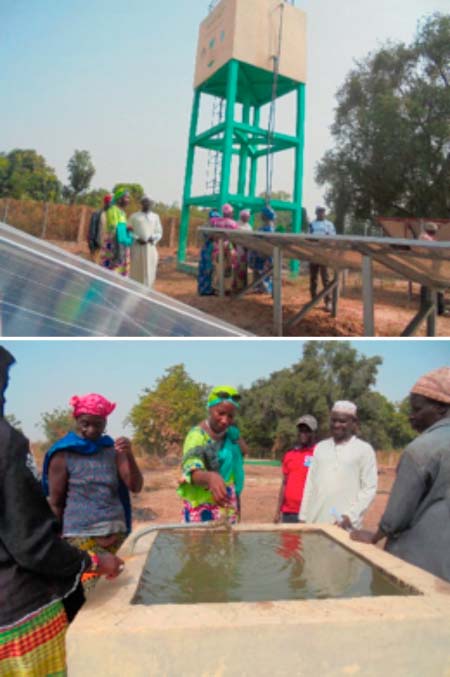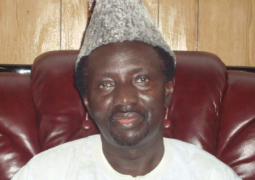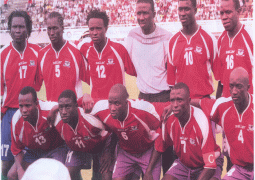
The NEA Executive Director led a delegation of project stakeholders on a consultative and monitoring tour of some of the project sites, under her purview in the North Bank Regions.
With the full implementation and near-completion of some of the livelihood support components of a four-year project, devised to enhance resilience of vulnerable coastal areas and communities to climate change, and to reduce the country’s vulnerability to sea-level rise and other projects being implemented by the agency.
Expressing her delight in the way the project is being implemented, she noted with confidence that the community had already taken ownership over the project, and holistically participates in the day-to-day upkeep and management of the multi-facilitated improving livelihood garden.
“One of the supports the project rendered to these local communities is the establishment of a modern horticultural garden for them, as an alternative livelihood to their rice fields and farms in the wetlands affected by salt intrusion.”
She added that the garden hosts an over-head water tank with a capacity for over 15, 000 cubic liters, that supplies running water through laid-pipes to over sixteen reservoirs within the garden, in an effort to provide easy access to water from any position in the garden.
Due to demand for more water supplies, an extra sixteen reservoirs had been constructed, she continued.
Received by jubilant village women and elders amidst clapping and dancing, the NEA official was welcomed into the new livelihood support garden designed to be utilized by the communities in both the dry and rainy seasons.
In addition, all the gardens are fortified with modern fencing techniques that could serve the communities for the next 30 years.
The NEA official said the effect and impact of salt intrusion, as a result of climate change, is serious and continues to affect the livelihood support systems of many local communities, and has made them vulnerable to poverty, hunger and food insecurity.
In some of these villages, she went on, mangroves and other forest species are dying at an alarming rate, making access to fuelwood and aquatic species such as fish very difficult.
She opined that these interventions would counter the above mentioned problems, and the development would further provide an opportunity to work in the garden all-year-round, while pupils from the local schools can make use of their outside the classroom lessons on agriculture in the garden.
Mariama Marong, village women’s leader, assured the visitors that they would jealously guard the project for sustainability.
She noted that the project had already started improving the lives of many in the village, adding that this modern community garden would provide a significant source of food, income and access to nutritionally-rich vegetables that may otherwise be unavailable to low-income families and individuals.
The Project Monitoring and Evaluation officer, Marie Chorr, revealed that women working in the garden benefited in the diversification programme, with a newly-built house, modern store, toilet, kitchen, decomposition chamber and a waiting room for lactating mothers and young children, who usually accompany their parents and stay longer hours in the garden and or during the rainy season.
It would be recalled that similar interventions were made towards improving the livelihood of some local fishing communities, when the project purchased three new 18 meter-long fiber boats equipped with all necessary gears for the Tendaba fishing community in the Lower River Region.
To bridge communication between the Missira village in the Kiang West District and Bintang village in the West Coast Region, which are separated by one of the tributaries of River Gambia, the project bought another fiber-boat with all equipment for Missira in LRR to ease the tradition of long journeys to cross to the West Coast Region, provided goods and services, provided accessibility, thus improving their livelihood.
Other communities that have similar garden projects like Illiassa and Missira include the villages of Bondali-Tenda and Bintang.
In Dasilami village in the North Bank Region, the project’s intervention is to improve salt production, quality, salt pond management and the harvesting, processing (including iodization) and packaging of salt.
Also to enhance the productivity through support in inputs (such as Iodine and mixing machines; pumping machines and piping; revolving funds, protective gears; gloves, wellington boots; spades, bags, containers etc).



